There has been a recent surge in generative AI search engines, but what factors do they use to rank medical providers and how do they impact aesthetic practice marketing? Our CEO Ryan Miller outlines what generative AI actually knows about your practice, experience, and credentials, and how to appeal to these new search results and reach more consumers. Check out the tips and tricks about what generative AIs pay attention to in your profile and how to update your CV so you can out-E-E-A-T the competition!
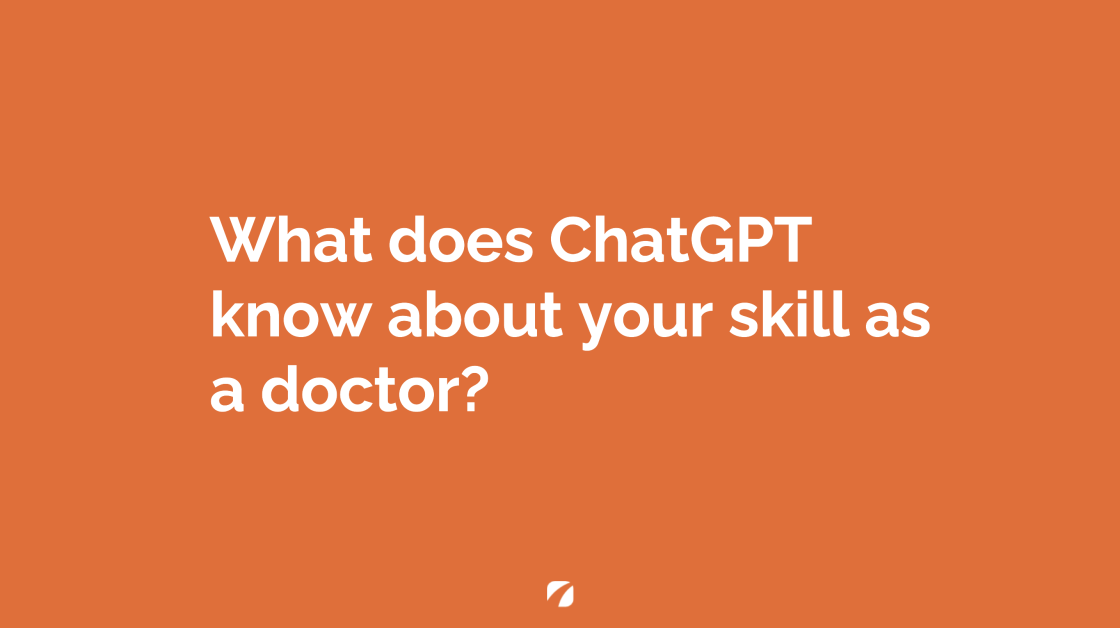
Hi, again, it’s Ryan Miller with Etna Interactive, and we’re here today to answer the question, how do the new generative AI search engines determine who’s the best medical provider in any given market? So we’re really interested to explore, first and foremost, what exactly do things like ChatGPT, Google’s Bard, actually know about you, your medical experience, your credentials, your training, your relative authority on the topic?
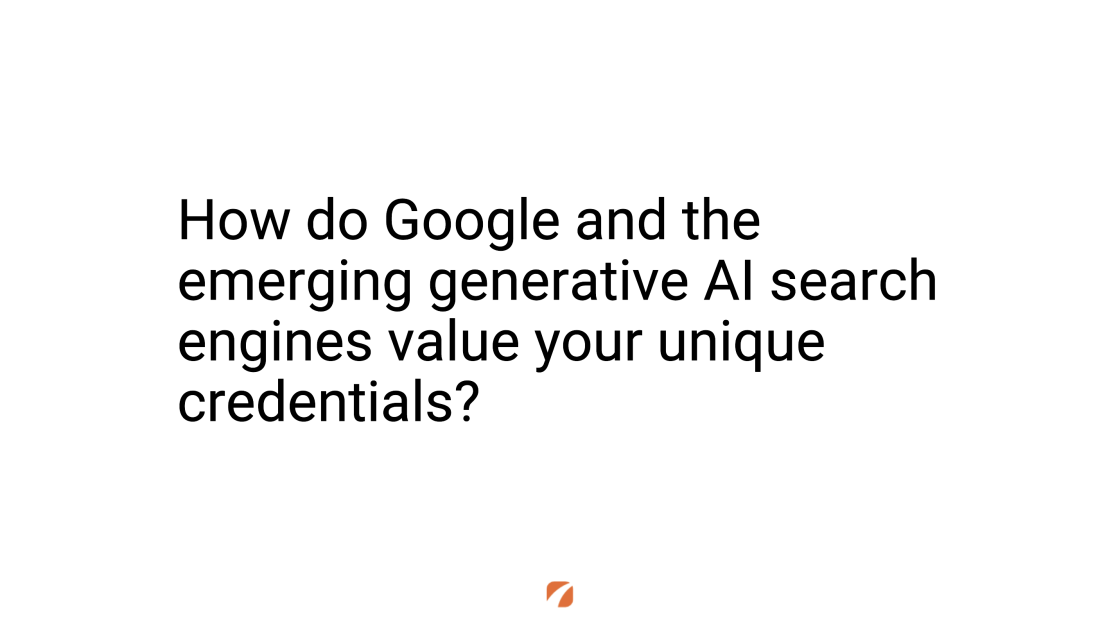
And pretty quickly we came to the conclusion, and this is perhaps somewhat intuitive, it’s just what you force, feed them. What it’s able to find, locate, and comprehend as it looks around the Internet. But more interestingly, and where we spent several months performing research, I have to credit my colleague Shannon, who did the heavy lifting here, was answering the qualitative question. Given all the information available on the Internet about you and your practice, what are the subjective factors that it appears that both Google and the newer generative AI search engines are placing value on when consumers are asking them who’s the best at any particular procedure inside of their market?
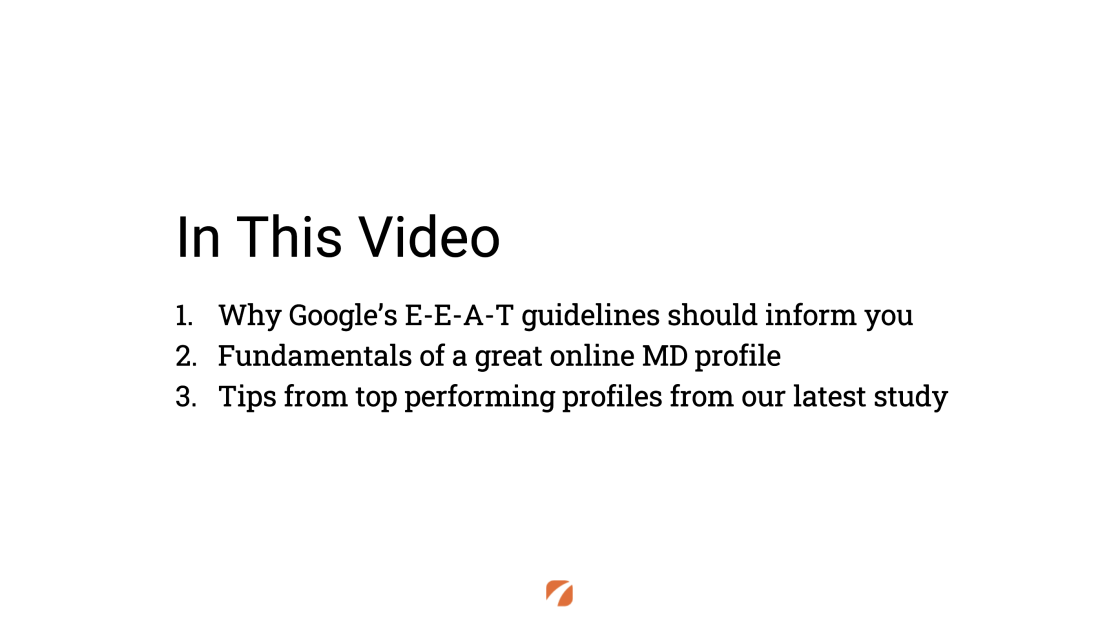
So, in this short presentation today, we’re going to go through just a couple of things. I’m going to give you a framework to think about the types of information that’s contemplated by the major search engines, both traditional, like Google and the generative AI search engines. From there, we’re going to go through kind of the anatomy of a really good presentation of the providers inside of your clinic. And then finally, we’re going to close off with some tips that emerged in our analysis that were perhaps somewhat surprising in terms of what’s influencing generative AI search engine recommendations today.
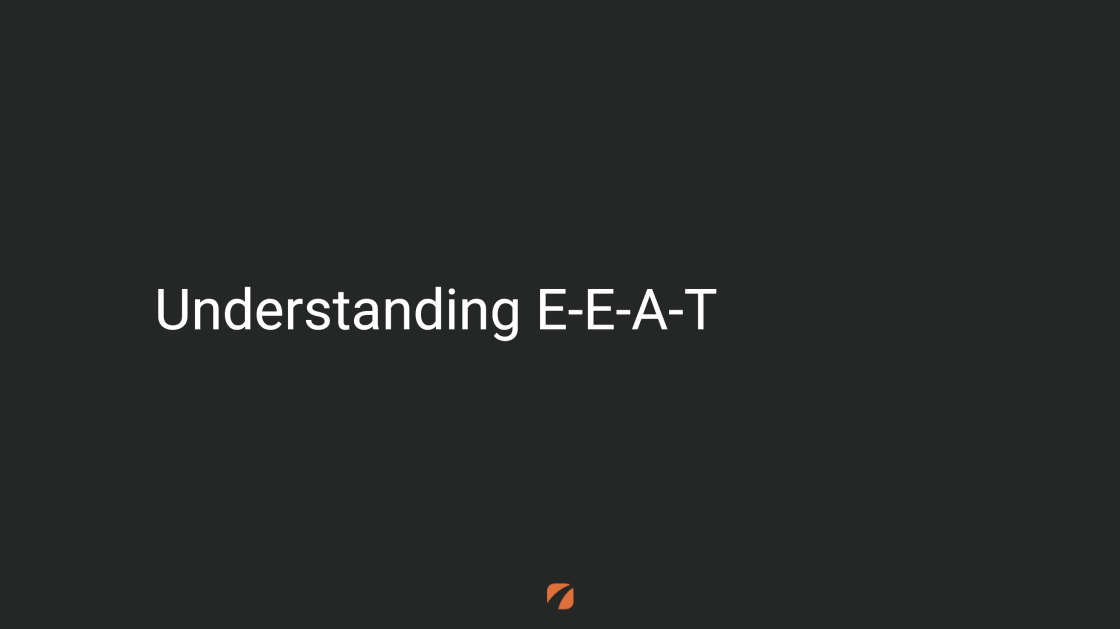
Let’s dive right in and let’s talk about the concept of E-E-A-T. Now, I realize this probably is not the case, but in my head, you’re standing in a sunlit hallway between casework and just asking yourself, “How does Google or any of the generative AI search engines, how do they improve the quality of their search results?” And of course, you never wonder about this, but it’s actually a good question to answer, to give you a framework for understanding how to present or put your best foot forward, if you will, online today.
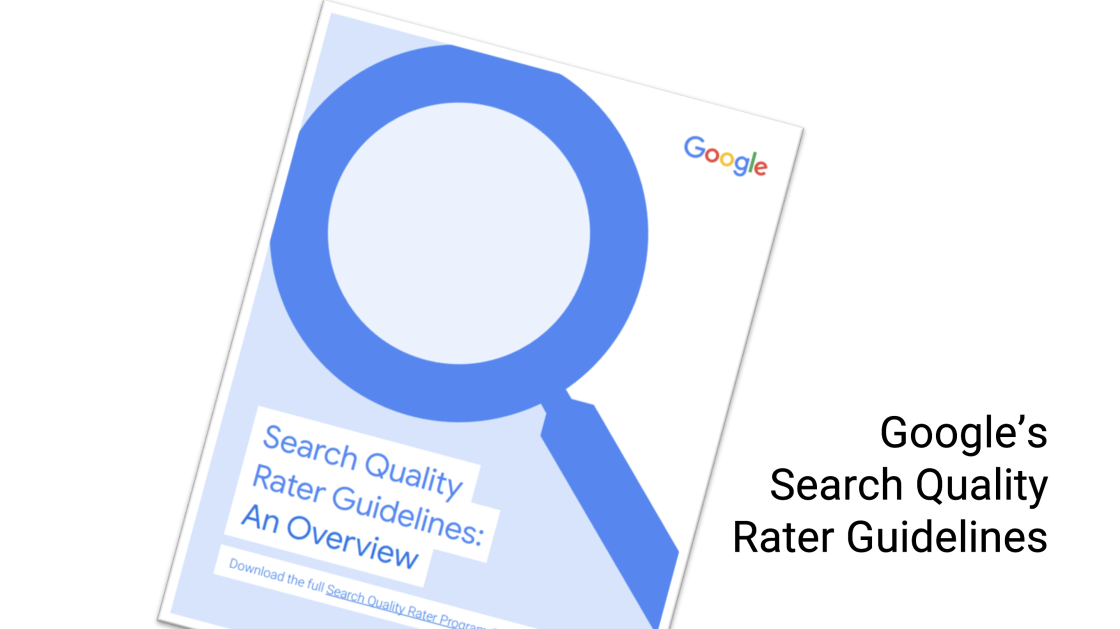
So, Google uses human quality raters. So, the basic concept here is that they have humans in their employment who follow a specific set of guidelines – it’s like a 180-page manual roughly – that tells them how to spot good versus bad search engine results with each proposed update to Google’s ranking system. What’s worth noting is that AIs do a very similar thing, only the discriminator, the rater is actually a second piece of software. And the first piece of software, the AI generates an answer, the second piece of software says, “Does that look like something a human would write?” And based on its feedback, the first piece of software refines its answer getting better and better and better over time, very, very similar to the older human model employed by Google in this instance.
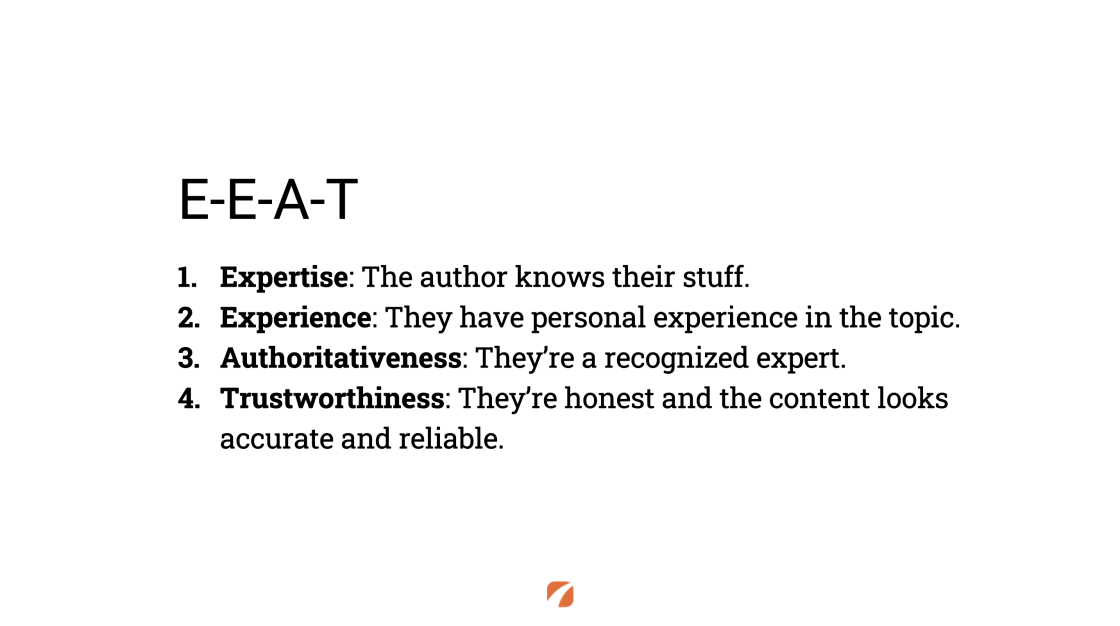
So, the E-E-A-T framework is something that appears in that huge handbook, the quality raters guidelines. And it’s a principle that’s applied when distinguishing search results where the stakes are high, and the industry would call them Your Money and Your Life, YM, YL. Financial advice or medical advice has generally higher stakes than, say, a recipe for chili, and so they apply a higher expectation when evaluating their search results that come back.
The first of those Es is expertise. This is the basic knowledge of the subject matter and personal experience. You’ve actually worked in that area, you have firsthand knowledge of the topic that you’re writing about. Authoritativeness generally means that your expertise or your experience are recognized and lauded by others, usually in the same industry, or others who consume your services. And then, finally, that you’re trustworthy, that there’s no bias slipping in that ultimately corrupts the trustworthiness of the content that you’re going to present on the web.
To understand this framework, I actually like to use tax accounting as an example. So, let’s say, you got a guy who lives down the street from you, a neighbor, that you’re kind of friendly with named Michael, and Michael’s a mechanic. Well, it’s tax season right now, you probably wouldn’t go to Michael for tax advice. But if, instead of being a mechanic, Michael had just graduated from a tax accounting program, he’s got some fresh knowledge on the topic, the basic expertise that he would need to be able to give some advice or direction, but no practical experience yet. You might give his advice kind of like a B-, C+ in terms of its validity and value to you, if you’re having some tax challenges.
Now, let’s say instead, Michael’s actually a trained tax accountant with 20 years of experience. Well, now I might put his advice back to, maybe he doesn’t have specialized knowledge in the tax area that you’re having troubles with this year, so that might put him in kind of that B+ range.
Now, if, instead, Michael was a trained tax accountant with 20 years of experience, who just spoke in a major industry event on the exact topic that you’re challenged with right now – that authoritativeness, where he was recognized by his peers and given a platform to talk on the topic that’s relevant to you – suddenly Michael’s answer goes to a nice, strong A.
And, if to top it all off you’ve been at a couple of barbecues with Michael, he’s a nice guy, you’re not paying him, so he doesn’t have any reason to have a bias in terms of the way that he answers and approaches you, and you just know that you can trust him intrinsically well, that trustworthiness, now, we’ve got an A+ answer coming back. And that’s really the framework that Google is looking at as well as the major AIs today. It’s a basic way to evaluate the overall credibility and authority of an answer or piece of content on the web.
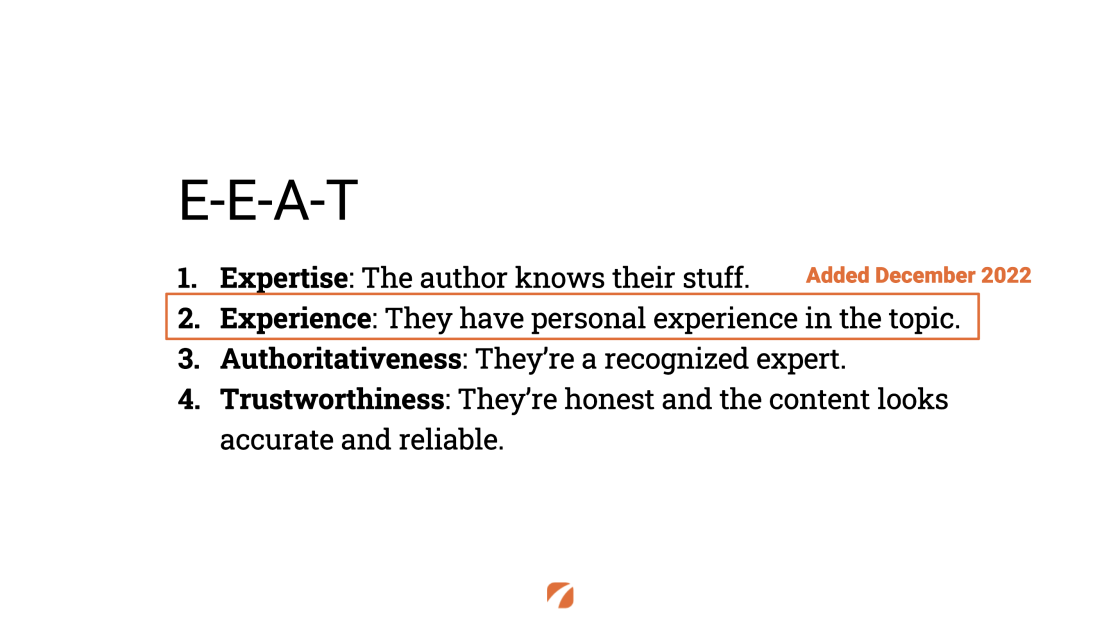
This is super interesting, though Google didn’t add the second E, experience until December of 2022. Now worth noting in November of 2022, well, that’s when ChatGPT was released. When suddenly Google says, “Hey, we need to add an extra little bit of criterion here to look for quality content, which is the human experience, first-person, personal knowledge that’s going to make this content uniquely valuable.”
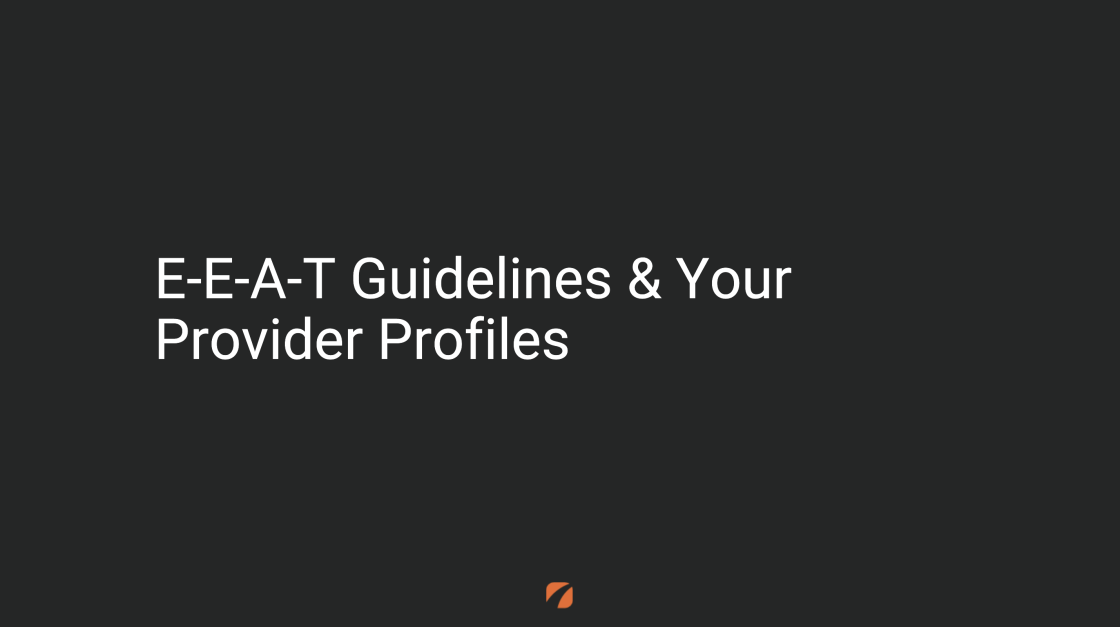
So, we take all those ideas and we just sort of say, well, let’s translate that into what today’s best profile looks like. I’ll use an example from one of our clients that we’ve helped rank number one for Plastic Surgeon Los Angeles. Consistently in that number 1 or number 2 space.
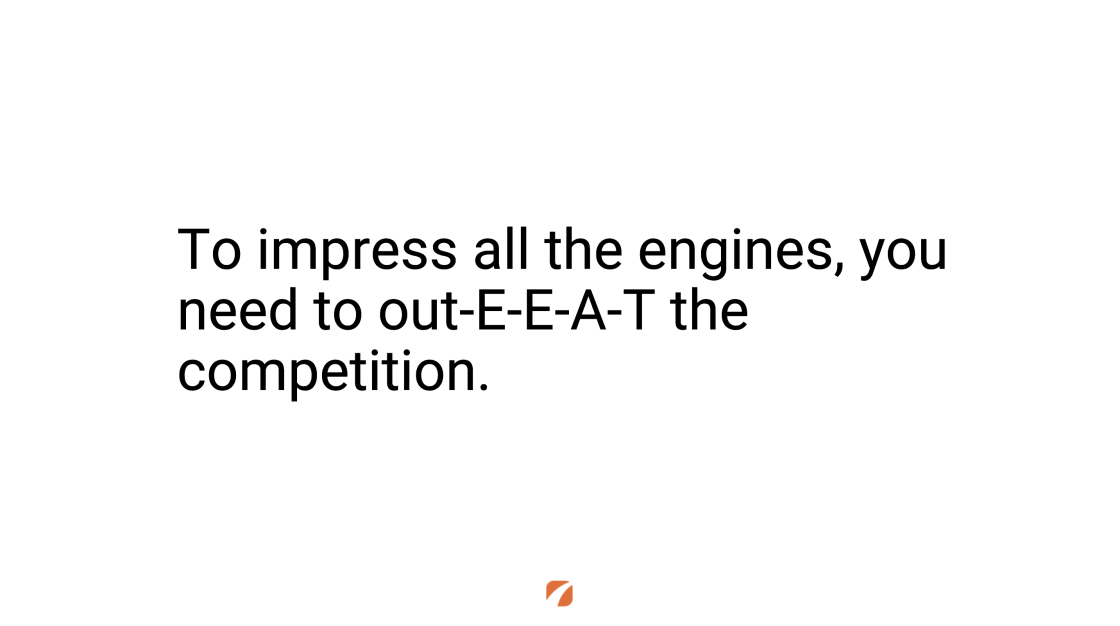
I think it’s a good model for what we would consider today to be table stakes. Because at the end of day, what we’re trying to do is sort of out-E-E-A-T our competition, do a better job of articulating those E-E-A-T factors that set us apart. So, in terms of your expert expertise, it’s going to be like relevant training, it’s going to be memberships and certifications that you’ve obtained, the experiences, years in practice, the number of surgeries that you perform, and any personally declared areas of specialization or innovation within the industry.
Authoritativeness comes when you’re given a platform to speak publicly, when you can conduct research and publish that research on the web, when you are recognized and invited by the media to comment on subject matter.
And then finally, trustworthiness is going to be industry appointments, service awards, testimonials, and patient reviews. All of those things need to come forward like in the example that we just put up on the screen.
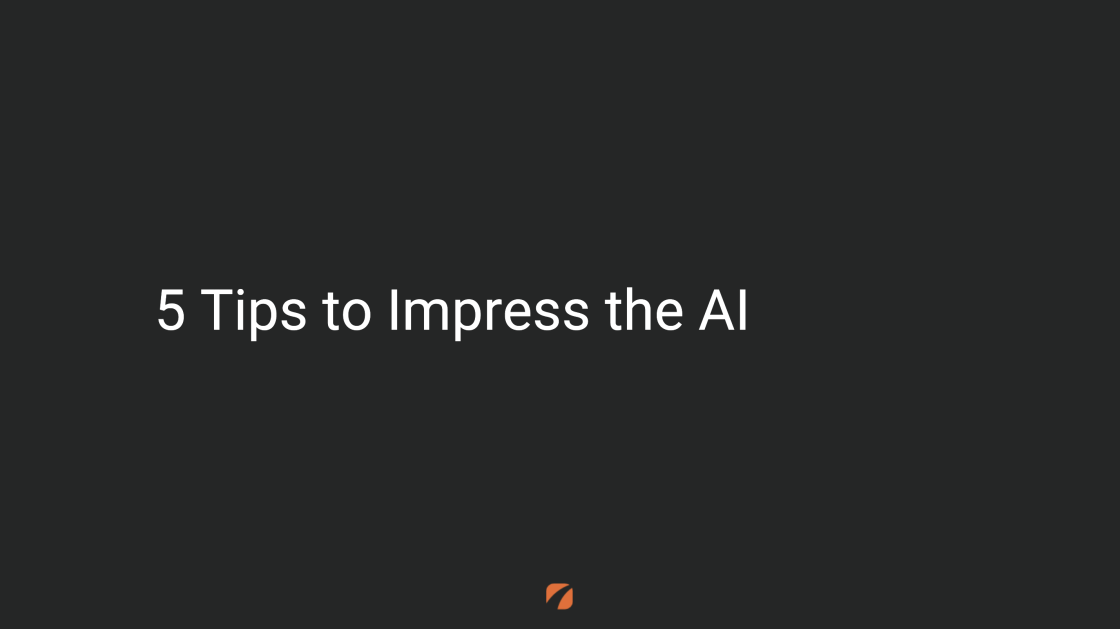
What was super interesting to us was that there were some outliers. We actually identified over 60 things that seem to especially impress the AI, the new generative AI search engines that are emerging. And I’m going to share, we’re going to reserve most of those for our clients, but for our followers here on our newsletter, we’re going to share 5 of those things that were super interesting to us.
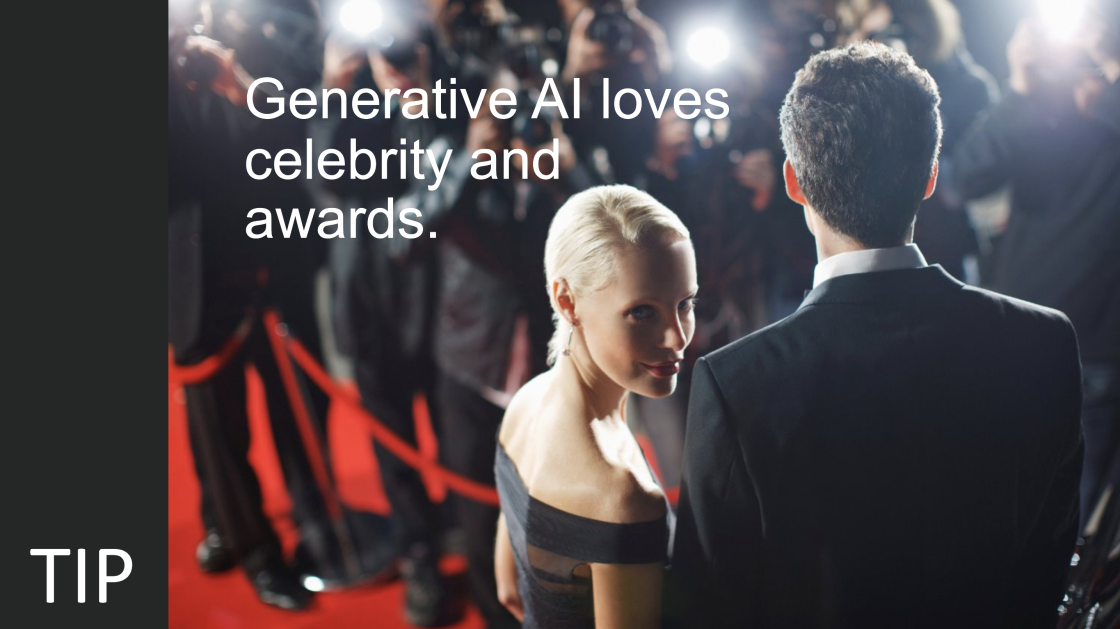
The generative AIs, ChatGPT, in particular, appeared to love celebrity and big awards. Not surprising because the ChatGPT database is a little bit older, the definition of celebrity may not be a current celebrity. But, exposure in media and major national awards appear to weigh heavier in the searches that were recommended, or best searches. On ChatGPT than on, for example, Google and some other sites that were examined.

Now if you will read between the lines here and see if you can fill in the missing word, what was super interesting to us is that the generative AI search engines seem to respond to self-declared specialization. I think we’ve maybe heard the saying before that the riches are in the niches, and that appears to be very, very true, as it relates to generative AI search results. And individuals who are willing to pigeonhole themselves and declare publicly on their own profiles, that they were devoted to a particular set of procedures or area of practice tended to perform better in niche searches. Searches where we’re looking for a best liposuction surgeon in a particular market.

In addition to that, the surgeons who were top-rated in the popular generative AIs seem to be more involved in industry. Holding leadership roles in types of major organizations that are recognized authorities in their industry, actively involved in researching, or at least at some point in their career having published in the area in line with the procedures that we were searching at that particular moment in time.
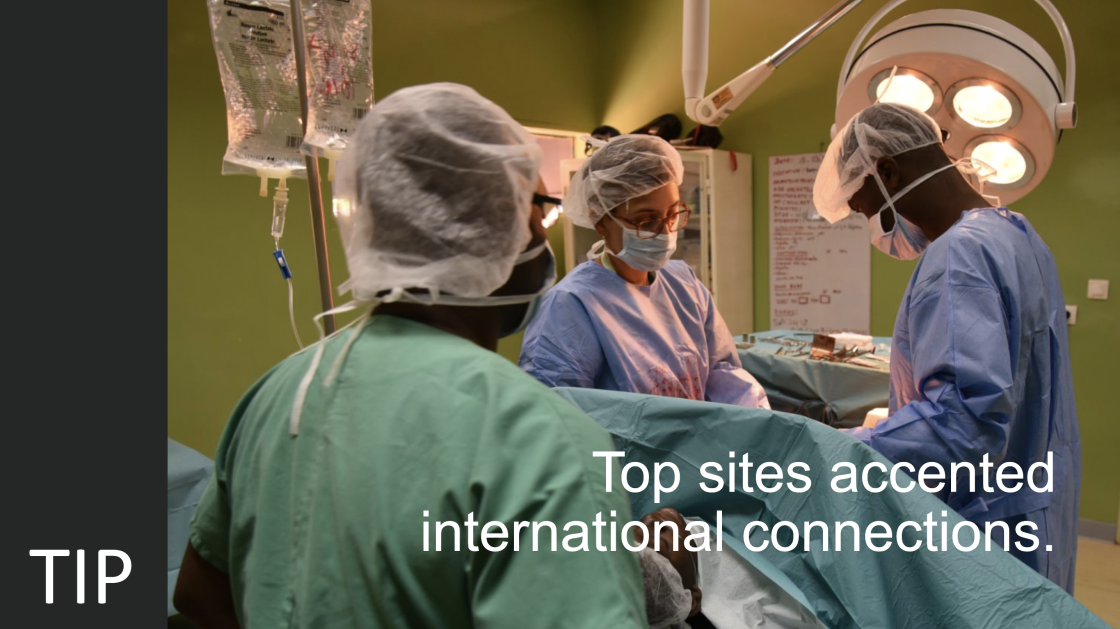
Probably my favorite of those 60+ findings was that the generative AI seemed to be particularly interested in individual doctors who had international connections. I can’t explain this one in particular, which is what makes it fun and surprising, but we noticed that the results that were being recommended by generative AI search engines disproportionately referenced international connections on their profiles inclusive of international training, international lectures, humanitarian work abroad or even simply speaking multiple languages.

The last thing, and I think it perhaps, is the most reassuring of all these things is, that it does seem that caring still counts. The surgeons who were top performing and generative AI took great pains in espousing their ethos on patient care, talking about their approach to both the consultation and their bedside manner postoperatively. And exposing these very human factors ironically seemed to be important to the robots.

So, when we bundle all of these ideas together. We think, “This is fairly straightforward, this is something I can do,” and we would agree 100%. This is absolutely something that every provider can do.
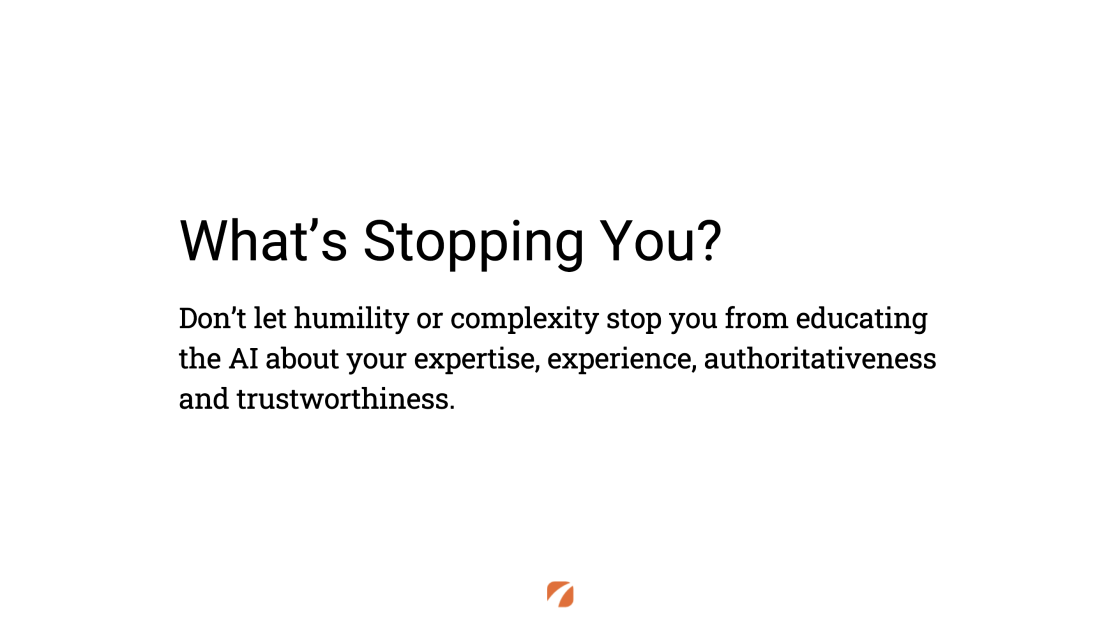
But there are 2 obstacles that we’ve noticed that can get in the way of presenting really an exceptional profile on your website, and usually it’s going to be humility or complexity. From the ability standpoint, it’s the recognition that sometimes it’s hard to boast about yourself, which is why, having an agency partner who can extract the things that are unique and special and important about your practice, and you personally, and showcase them in a way that’s honest and objective and important to the consumer.
The complexity is simply recognizing that some of these things, you know, not everybody keeps their CV up to date, maybe you don’t have the photo from the last time that you delivered a lecture publicly at a major industry event. So, taking the time to carve out, whether it’s an evening weekend or a quiet office hour to gather those assets that would allow you to portray richly, visually, in a way that’s going to engage with your patients exactly what kind of provider you are, and how you are connected to the broader world that you practice in is going to be probably the hardest part in this entire exercise. But the good news is both those things are easy to overcome.
If you have questions about our findings or research. Please feel free to contact us here at Etna Interactive or subscribe to our newsletter to receive more educational content. Again, I’m Ryan Miller. Thanks for your time today.

Leave a Comment